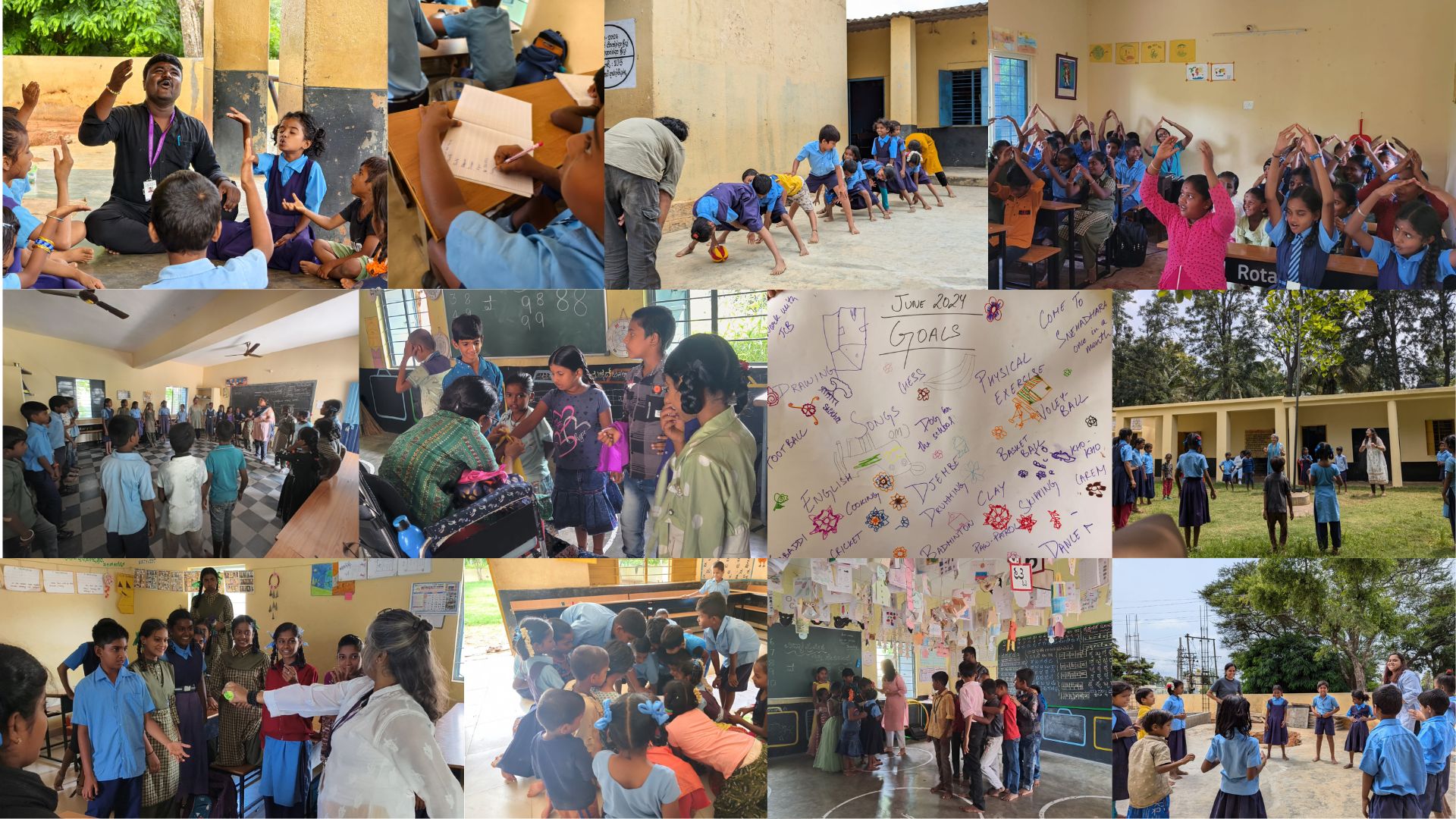Welcome to our blog! Today, we embark on a journey to Nelamangala, where the art forms meet education in extraordinary ways. Join us as we explore the vibrant tapestry of learning systems created by Snehadhara Foundation’s Arts Practices for Inclusion (API) sessions across local government schools. Through dance, music, storytelling, and more, these sessions not only enhance academic and social skills but also ignite creativity and build bridges among children of all backgrounds. Read on to discover the journey and impact of this transformative initiative!
In our growing, interconnected and dynamic world, the importance of alternate ways of learning is gaining renewed focus and impetus. Snehadhara Foundation (SF) has long been a champion of the powerful capacity of art forms and has developed a one of a kind methodology to apply it. At the government schools of Nelamangala, SF is pioneering a transformative approach through their sessions based on this Arts Practices for Inclusion (API) methodology. These sessions are about bridging gaps, nurturing talents, and fostering holistic development among children.

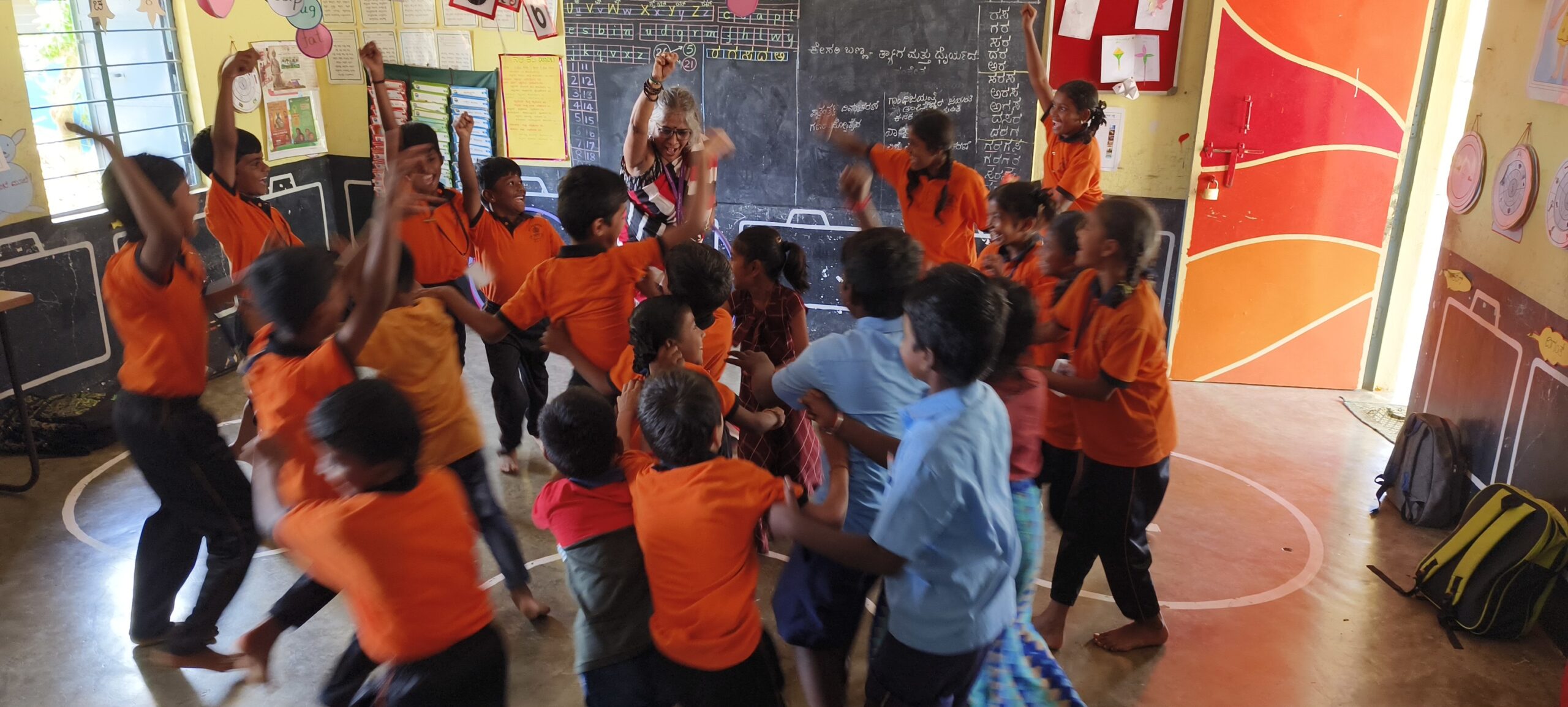
The Science and Practice of Arts Practices for Inclusion
Arts Practices for Inclusion (API) is a scientifically grounded approach that leverages the power of artistic expression to promote cognitive, emotional, and social development. Research has shown that engaging in arts activities stimulates multiple regions of the brain, enhancing neural connections and improving cognitive functions such as memory, attention, and problem-solving skills. Leveraging this along with the rich knowledge from indigenous learning and spiritual systems, API provides a unique pathway to learning.
At the heart of these sessions are various art forms: dance, music, rhythm, play, and storytelling. These mediums serve not only as avenues for creative expression but also as powerful tools for enhancing academic and social skills. Through these mediums, children explore, embrace and create skills and abilities that build their capacity for learning. Through engaging with art forms, they develop empathy, communication, coordination, discipline, teamwork and various essential skills.
Research underscores the significant role of creative interventions, such as those employed in API, in bolstering learning outcomes among children. Moreover, findings from the American Educational Research Journal indicate that integrating arts into education enhances retention of information and improves overall school engagement. API sessions are meticulously designed to build on children’s innate curiosity and capacity to learn. By incorporating sensory-rich experiences and hands-on activities with different materials through art, children explore new ideas, experiment with new materials and engage in imaginative play. This process further enriches their openness to academic concepts, nurtures a natural curiosity and openness to new ideas. API caters to diverse learning styles and abilities, making learning accessible and engaging for every child. For example, in the month of June this year, the children learning about body systems took initiatives to devise unique and creative ways to represent the types of teeth through actions and gestures. This indicates their ability to take initiative, creatively devise learning experiences, think critically and solve problems while showcasing their expanded capacity to learn.
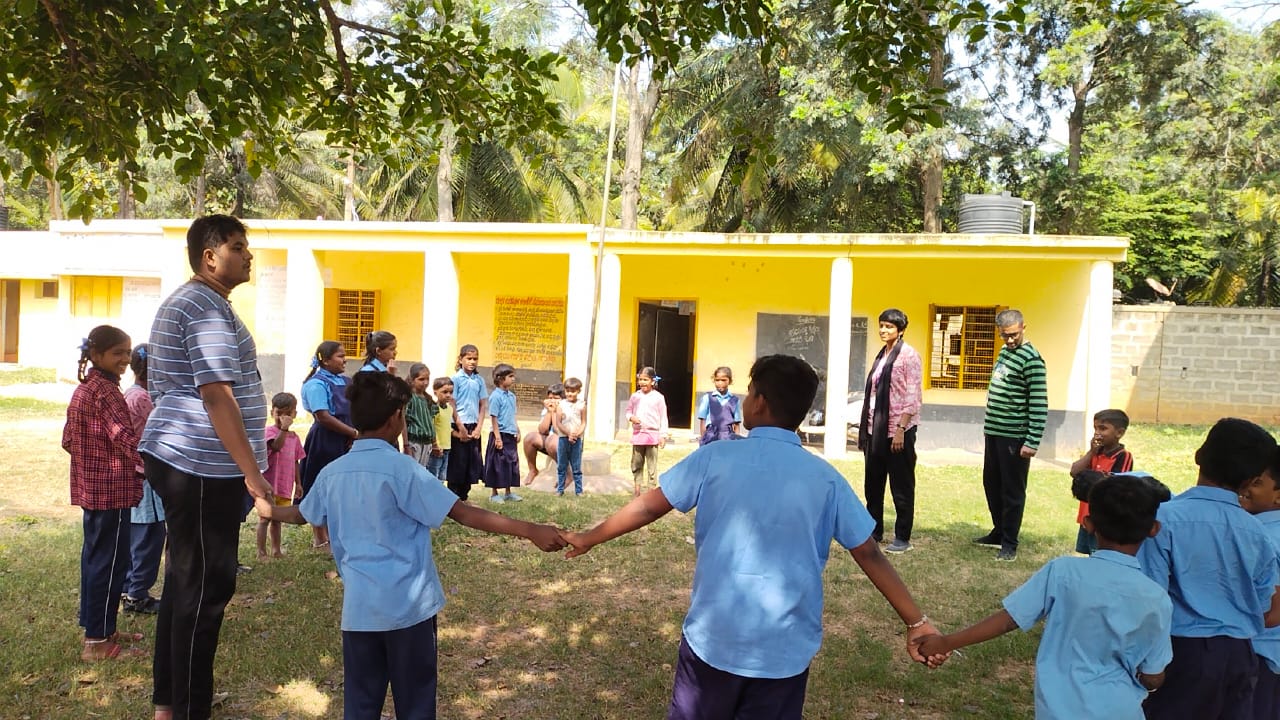
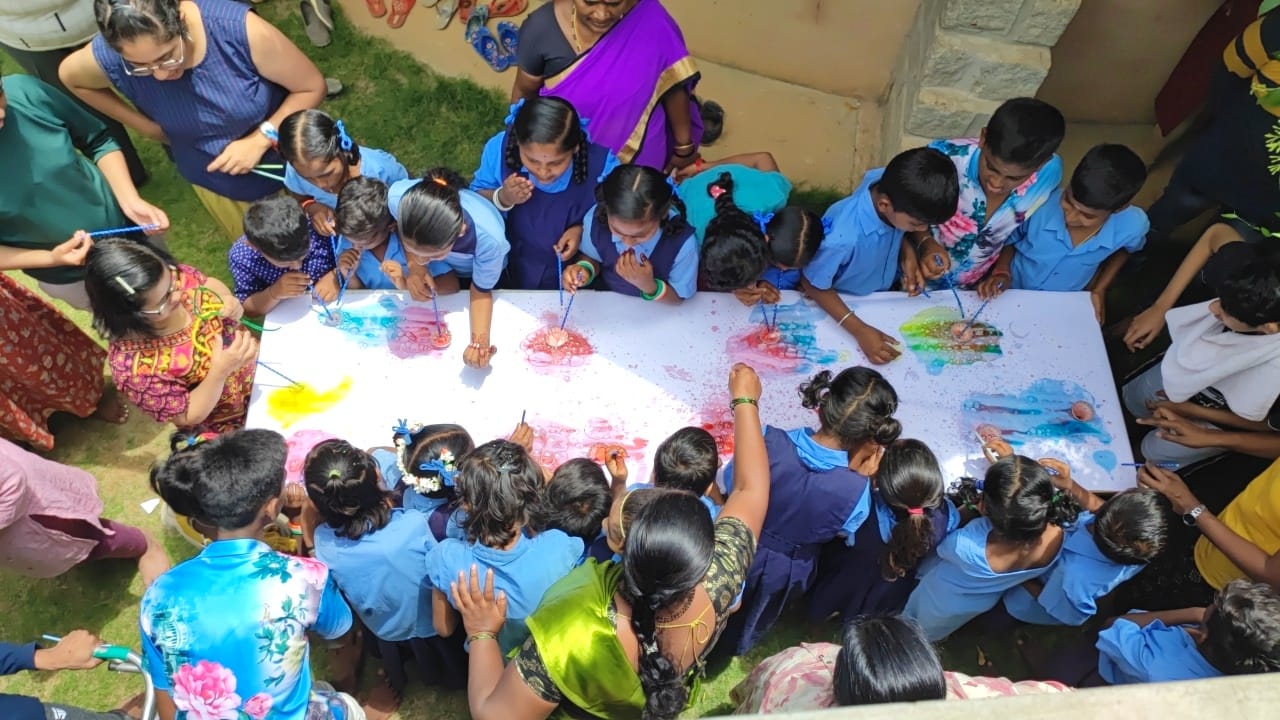
API in the New Academic Year
API returned to the schools in June and both the facilitators and methodology were welcomed back with great enthusiasm. This extended above and beyond as SF’s visit to the Block Education Officer was met with genuine openness where they reported a great response from the government schools of the work that was done in the previous year. The office has granted SF the permission to continue working within Nelamangala Government schools and expand to higher primary schools with invitations to take this methodology to newer spaces as well!
The API sessions initiated by SF last year now span across several schools in Nelamangala, including Gollahalli, Gopalapura, Arjunbetahalli, Hyadalu, Basavanahalli, Byershettahalli and Guttepalya. The foundation’s holistic approach encompasses lower primary to high school children, aiming to create inclusive learning environments where every child’s potential is explored and celebrated.
The children have taken to this new format with great enthusiasm and with an eagerness to experience and learn. The journey of learning with the arts commenced with the sciences this year. The systems of the body have come to life outside it by making and singing songs about the structures and function of body systems, dramatising its mechanisms and enlivening it through play.
This June, the API practitioners from the Arts Practices for Inclusion (API) certificate course visited and conducted sessions at the government schools. This not only provided the practitioners an opportunity to strengthen and broaden their facilitation skills but also allowed the children to experience different teaching and learning styles within the same methodology. Although a language gap was present in a few cases, the methodology facilitated a way for the children and the API practitioners to creatively engage in their pursuit of learning goals further highlighting the adaptability and capacities for learning built by API.
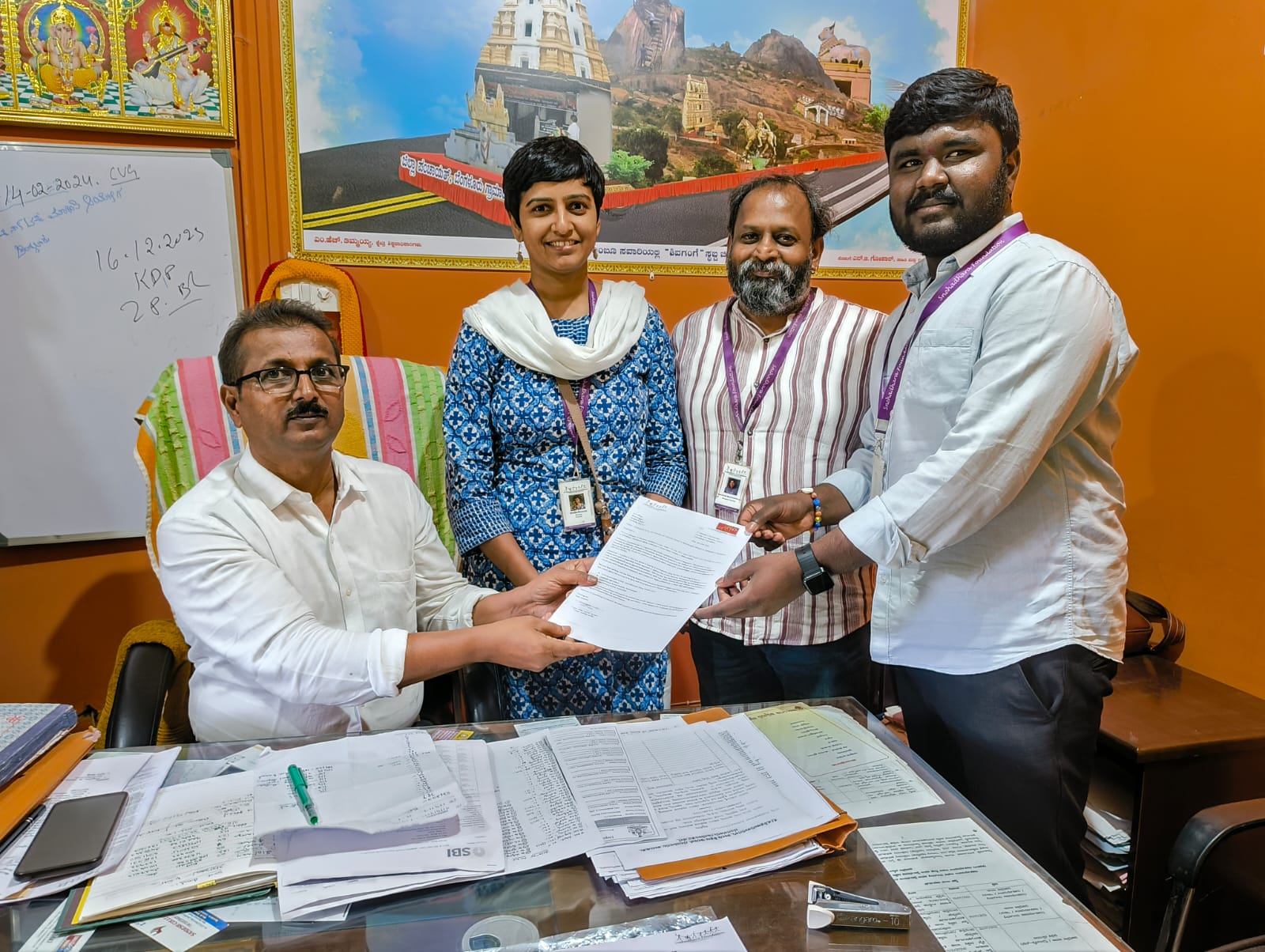
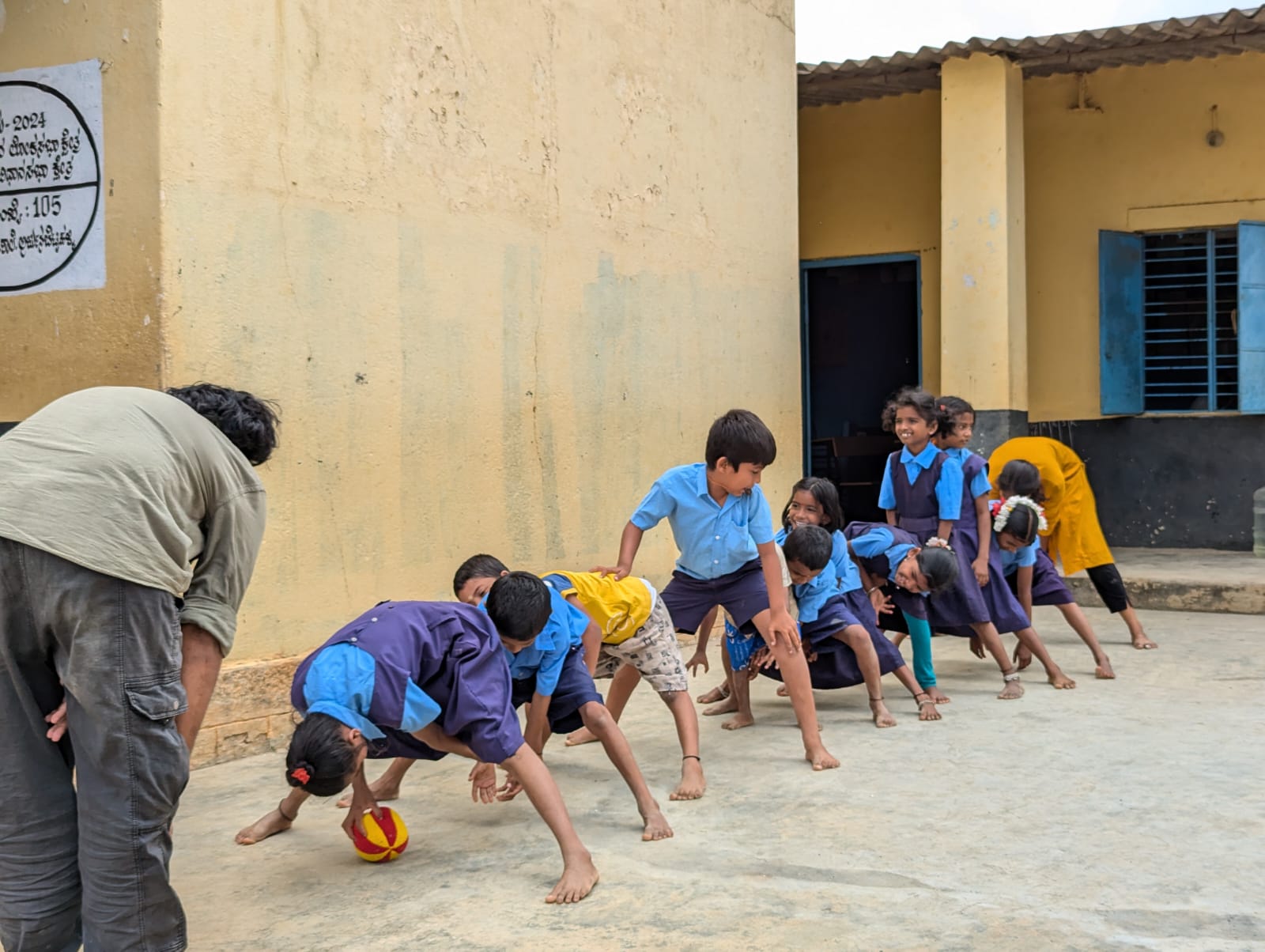
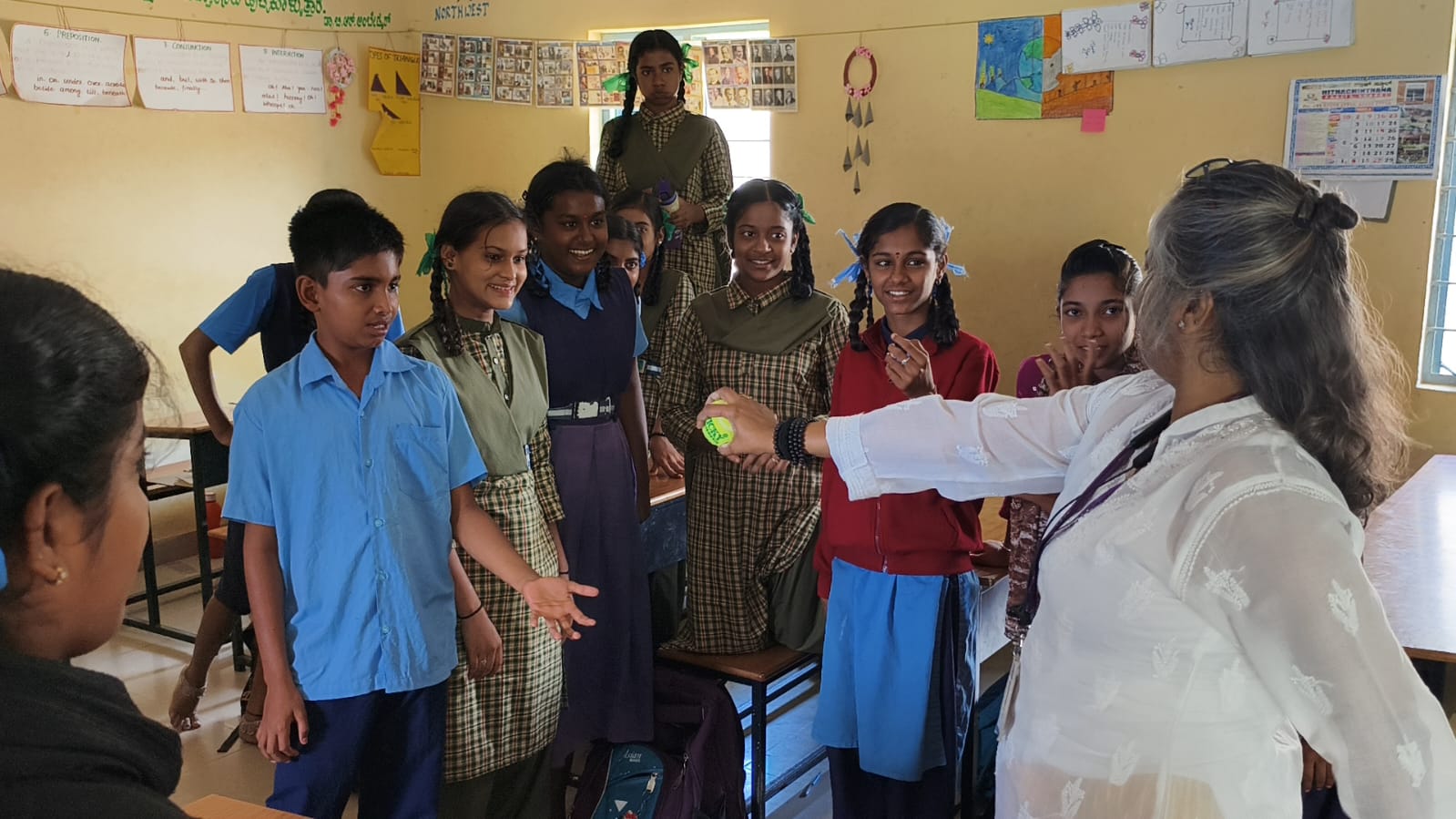
Building Inclusion Across Communities
One of the most inspiring aspects of this programme is its ability to blend different social worlds. Some children from the semi-residential Direct Care programs visit government schools, while others from schools have the opportunity to visit the foundation’s campus in Nelamangala. These interactions break down barriers and stereotypes, fostering friendships and understanding among children from diverse backgrounds. The building of relationships between neighbours as it were, is nurtured through this process.
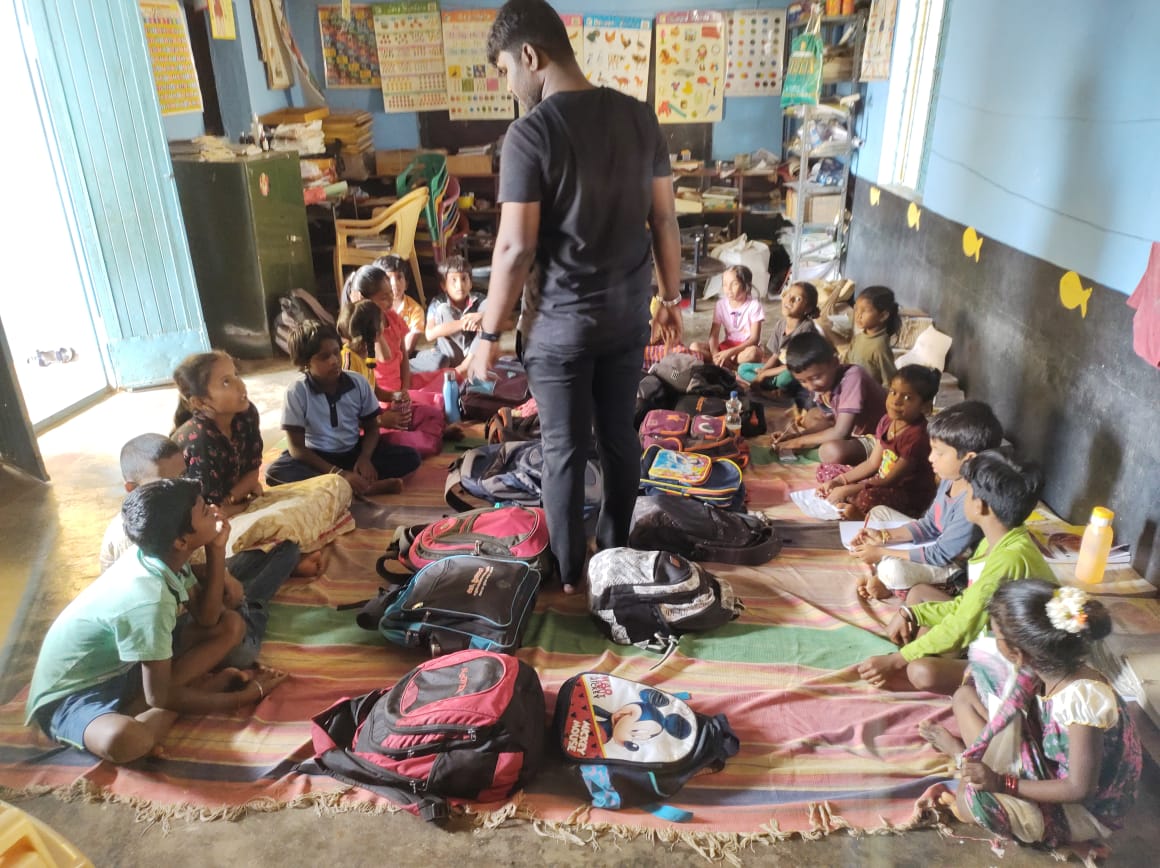
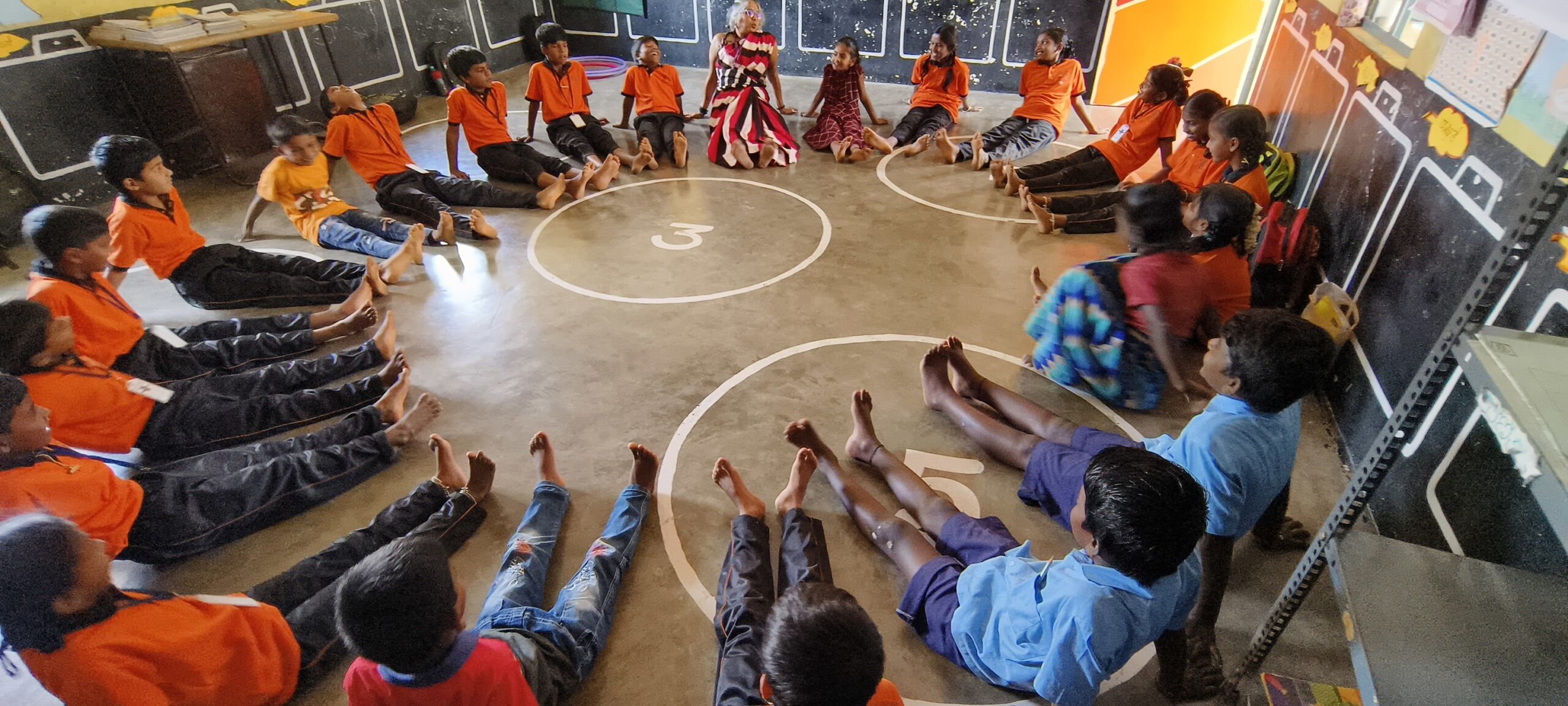
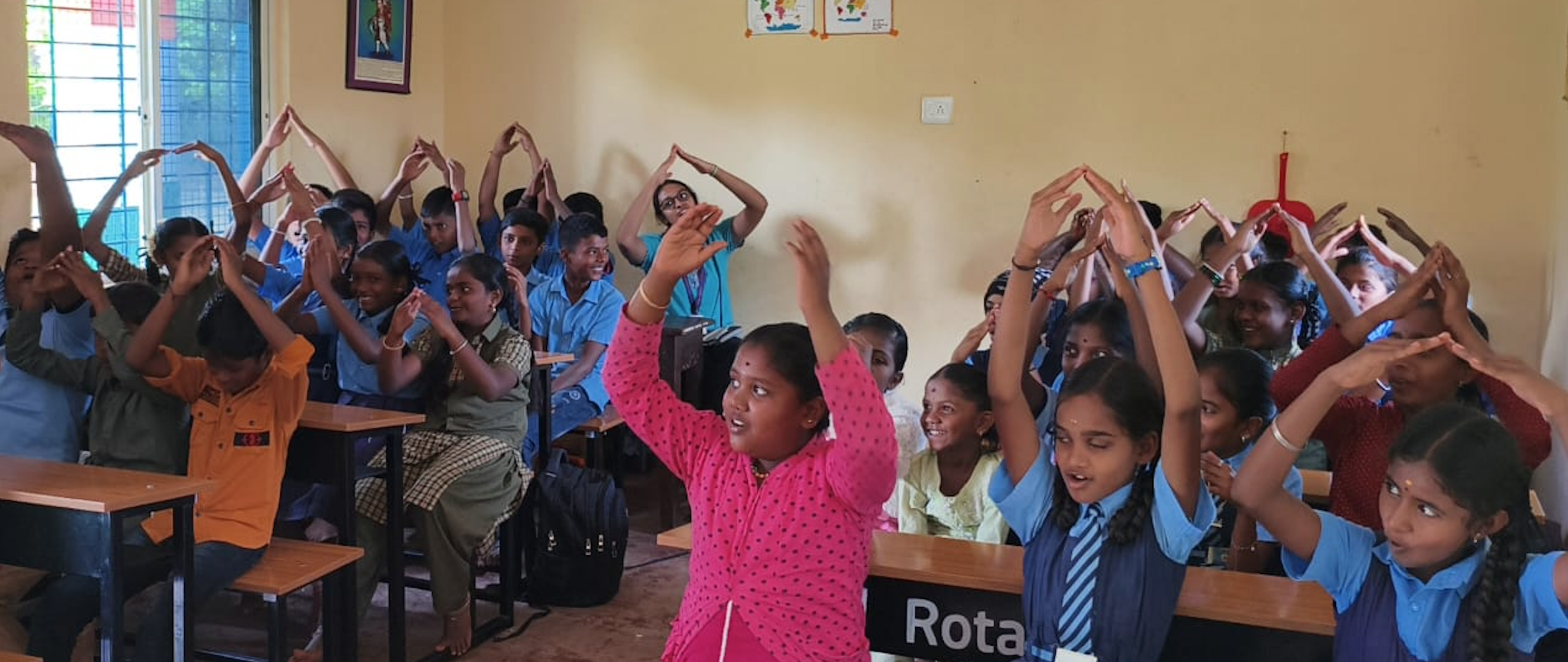
Looking Ahead
The impact of these sessions extends beyond individual children. They have created ripple effects that are building and growing within the schools and communities, promoting a more new worldview to education and a recognition of the impact of the multi-arts as a tool for learning. As SF continues to expand its reach, the hope is to take this powerful tool of learning and development to more schools and communities.
To know more about our Government School programme, please visit https://impart.snehadhara.org/education/in-classrooms/government-schools/.

